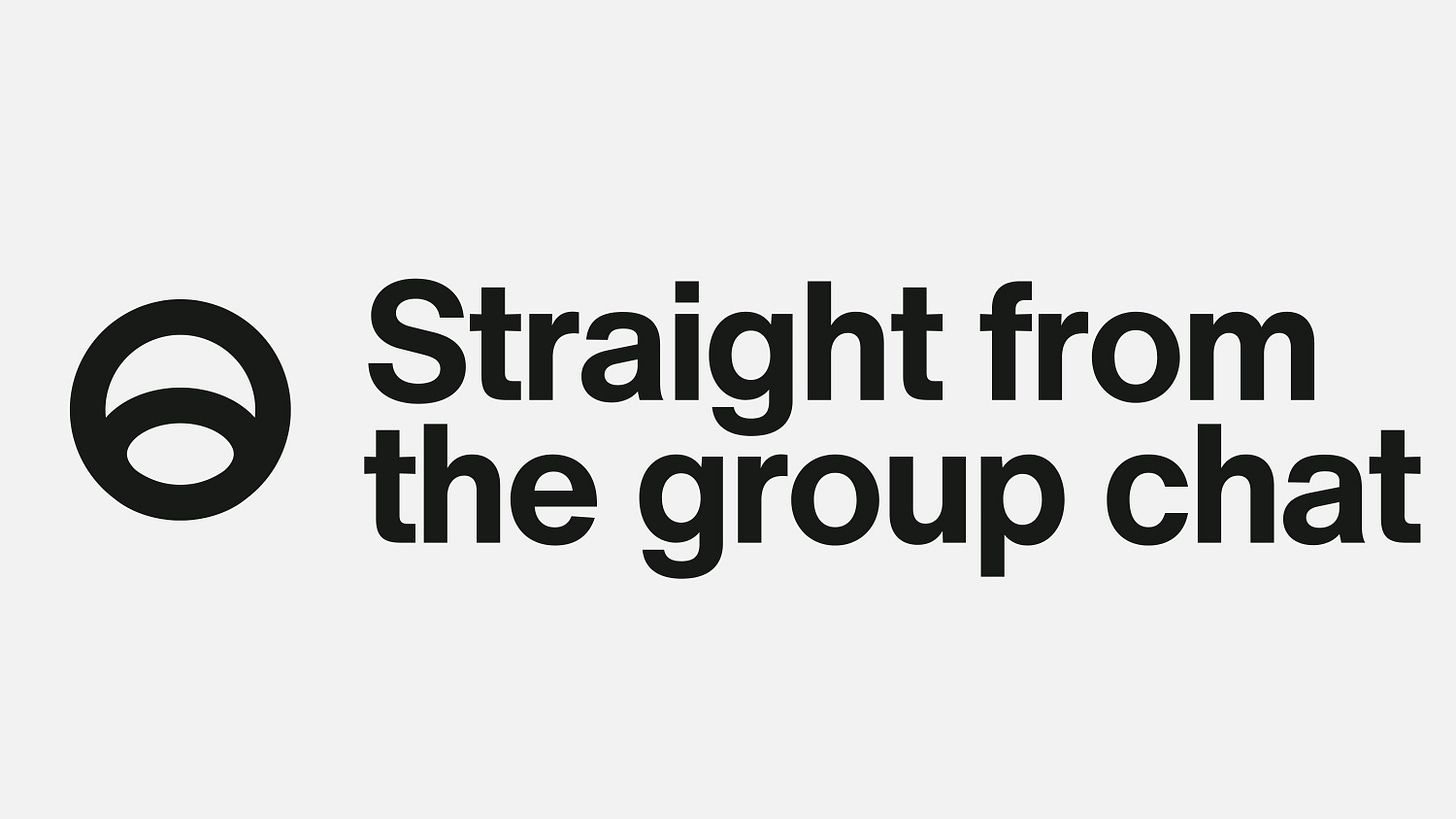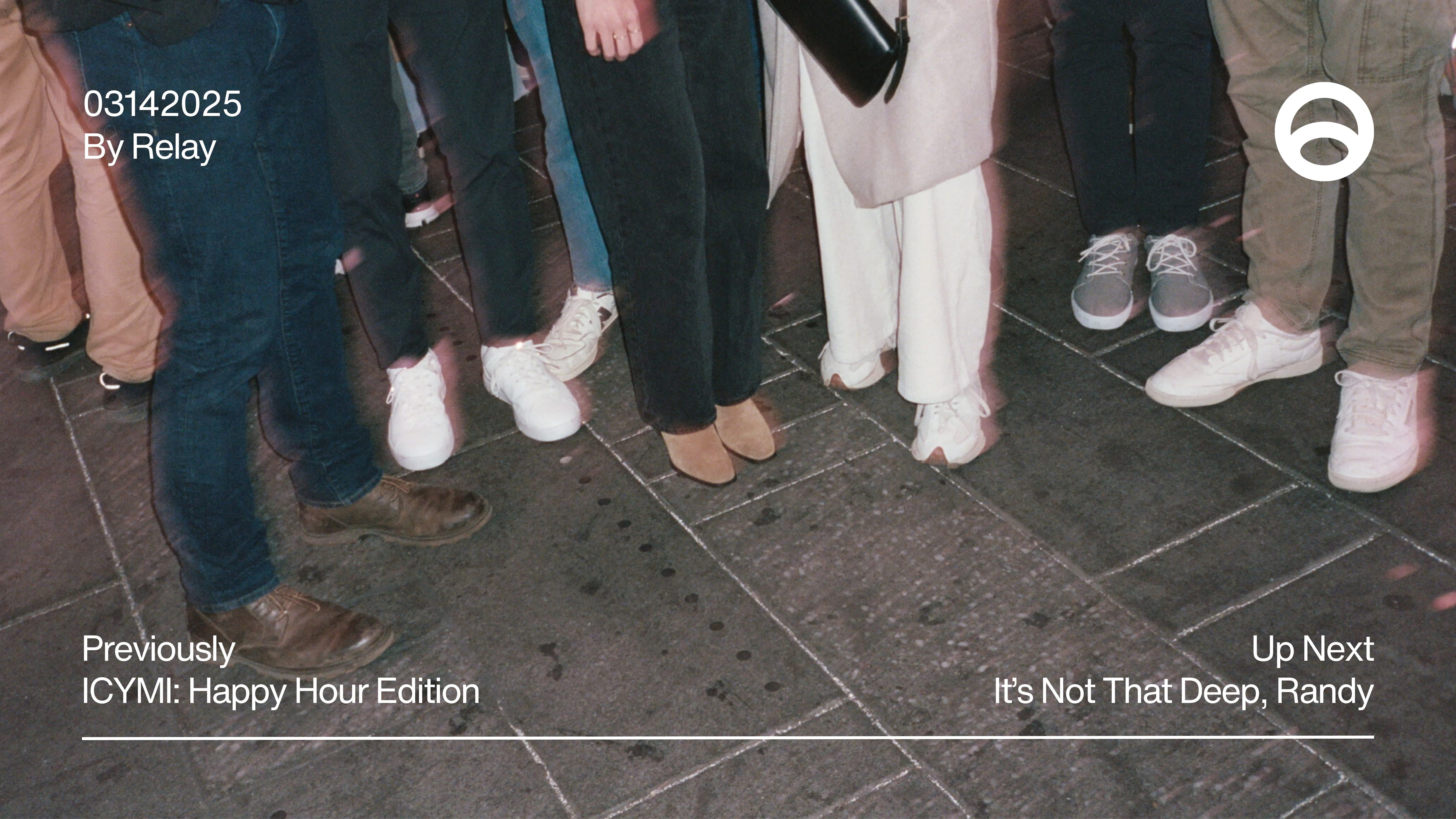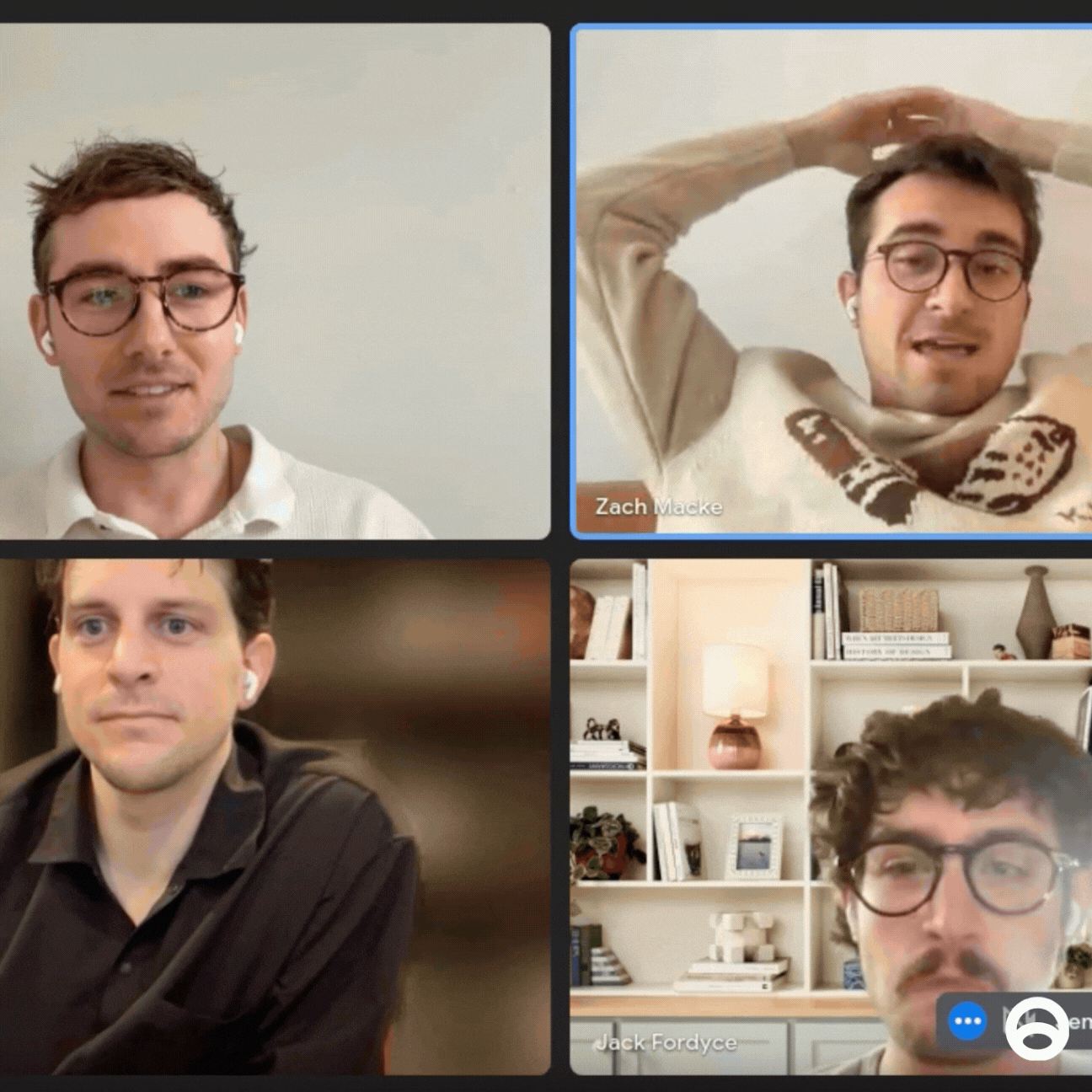Every Friday
“You can’t even buy a toaster without wondering if it fits your aesthetic.”
Patio season has arrived
Happy Friday crew - we made it. Hope spring is happening in your corner of the world. Nashville is electric right now and it’s impossible to snag an open table on the Embers patio (looking at you Nashville Running Club smh).
Here’s what the Relay boys are up to:
One of us is soaking up NYC before kicking off a new job. Another is off in Montreal with his girlfriend, apparently with a deeply good agenda on deck. One is grinding through grad school interviews, and another has escaped to rural Tennessee.
Beyond that? We’re still logging miles for marathon season, battling it out on Peloton, and scrolling Strava like it’s a part-time job. Also, we’re officially wary of the Substack home feed creeping into our free time.
Hope you’re finding your own rhythm this week. Let’s get into it.
hard to find a live show that sounds better than a studio recording. my girlfriend and i are seeing them live in montreal this weekend. i’m so stoked (it’s a surprise). - macke
“And this I believe: that the free, exploring mind of the individual human is the most valuable thing in the world. And this I would fight for: the freedom of the mind to take any direction it wishes, undirected. And this I must fight against: any idea, religion, or government which limits or destroys the individual. This is what I am and what I am about.”
― John Steinbeck, East of Eden (please, please read this book)
"Progress requires facing up to the institutions in life that are not working as they need to.”
— Ezra Klein and Derek Thompson, Abundance
Top of Mind
Behind The Screens
Anthropic CEO Dario Amodei wants to give AI an “I quit” button. Like a machine tapping out. This is an ethics question yeah? If this were a thing, AI development might shift from just getting stuff done to actually considering what the AI “wants.” Sounds kinda out there, but questions like this will redefine our ideas of progress. For example, does a more ethical approach to model training enable deeper prompt relationships and accelerate building.
The problem with wanting less is that these days, “You can’t even buy a toaster without wondering if it fits your aesthetic.” If the sensitivity toward perfection is too high, you never end up buying anything. You never build the things into your life that you end up loving. My favorite possessions are the ones that have simply become part of my life over the years, not the ones I agonized over for months, weighing every trade-off.
Did Thane Ruthenis just read Letters to a Young Contrarian? Kidding. His bear take on AI progress was a refreshing read amongst the constant AI hype news cycle that fills every feed we’re on. “Bear take” even felt a little harsh. More like an informed, “here’s how this will actually, really help us all” take. That is, if we’re excluding this line: “By default, everyone will die in <1 year after that.” Give it a read.
From Washington
Democrats are still trying to find someone to carry the baton heading into 2028 and Mayor Pete keeps popping up on the shortlist. His announcement that he isn’t running for the vacant Senate seat in Michigan has pundits speculating he’s gearing up for a White House run come next election cycle instead. Who knows? We’ll be keeping an eye on his public engagements over the next few months.
OpenAI wants fewer AI regs to keep up with China, prioritizing speed over safety. This is a serious privacy concern for Americans. Just because the PRC goes all-in on AI doesn’t mean we need follow. Falling behind is not an option, but neither is abandoning safeguards that ensure AI serves democratic values. The U.S. needs to lead with innovation and responsibility—AI should serve people (as long as it is not sentient of course), not surveillance.
David Friedberg calls out a major flaw in the U.S. Social Security system: it only invests in low-yield U.S. treasuries (4.8% annual return), while the S&P 500 has averaged 10.5%. That gap has cost Americans trillions. If OASI funds had been in equities since 1971, the trust fund could be worth $15.1T today, giving the public ownership in top companies and avoiding its projected 2032 insolvency.
Ctrl+Alt+Culture
In a lovely-to-read article by Alice Maz we were reminded this week that as she says, “you can just do stuff” (we’re trying our best at Relay). Maz argues those who do the stuff they connect to most deeply will end up “inscribing their wills on the earth”. Whether or not your mark is left, it is a sad day when you realize you haven’t done anything exciting to you in recent memory out of fear that it won’t be useful enough, interesting enough, cool enough.
As you know, we’re fans of the Lindy Newsletter. We can’t stop bringing it up (me, Jack, I can’t stop bringing it up). We’re obsessed with the whole idea of the Lindy Effect. Learning Civics From History scratched my Lindy itch this week. James Hankins dives into how 14th-century Europe’s institutional collapse mirrors today’s struggles and how Renaissance thinker Francesco Petrarch sparked a revival by looking to the Lindy wisdom of the past. New civic programs like The Hamilton Center at the University of Florida (Hankins is on the board) are trying to do the same, bringing back classical education to restore leadership and historical understanding.
Jonathan Haidt was on Armchair Expert this week promoting his new book The Anxious Generation. It’s a wide ranging conversation covering everything from the impact of legalized sports betting on Gen Z men (spoiler: it’s bad) to the unintended consequences of gamifying every aspect of our digital lives (spoiler: it’s also bad). It’s a must listen for anyone feeling digitally burned out (your dopamine receptors will thank me).
ICYMI: Happy Hour Edition
Things I recommend you buy and use (Consumer Surplus)
If you’re into cool running brands (Cadence)
Tiny Teams doing impressive stuff (Tiny Teams)
The Zizians - a wild read (From the New World)
Edgy outdoor clothing for you all (Earth Studies)
OpenAI Nonprofit Buyout: Much More Than You Wanted To Know (Astral Codex Ten)
Eric Schmidt Joins Relativity Space, a Rocket Start-Up, as C.E.O. (The New York Times)
It’s Not That Deep, Randy
Thanks for reading—or for mega scrolling all the way down here.
The competition for our clicks, attention, and time has never been fiercer. More apps, more news, more of everything. Big Tech has centralized the web, commoditizing our screen time and dictating how we consume information. As our online selves continue to age, how do we ensure we’re truly tuned in—not just absorbing, but thinking critically?
Relay is a collective effort to distill information across tech, politics, and culture. It stands in direct opposition to the hollow drift toward cheap consumption, regrettable minutes, empty engagement, and a distorted understanding of the real world. It’s a refusal to let algorithms erode our ability to think critically—and an invitation to participate meaningfully, despite apathy becoming the social norm.
We’re focused on more signal, less noise. Tag along (it’s free).
Subscribe and leave us a comment so we know you’re out there.
















